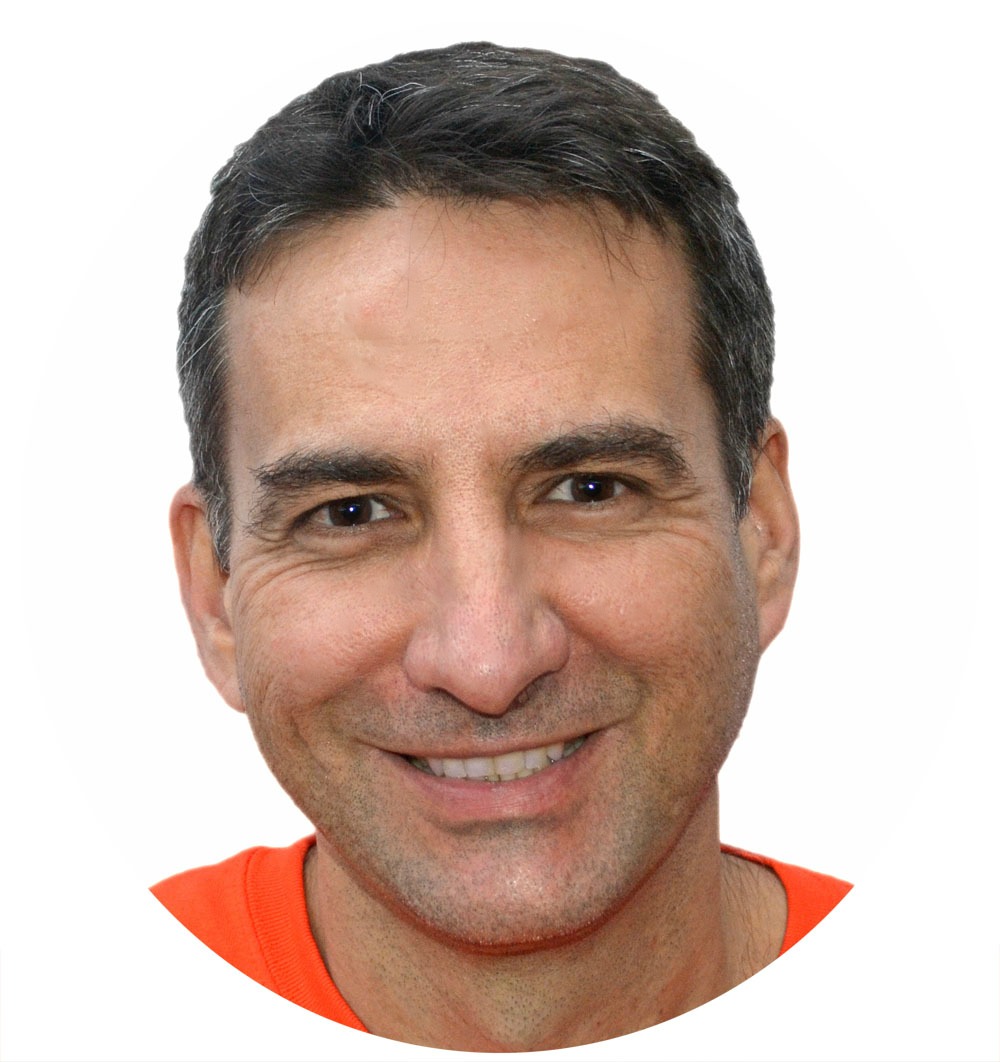Page Contents
Lack of vitamin C: Why Many People are Unaware of its Real Value to Promote Health?
By Arturo Galindo, Cert. Nutritional Therapist
A lack of vitamin C may lead to other chronic diseases according to vitamin C experts.
But how is this possible? Because a vitamin C deficiency is not only scurvy. You can still be deficient and not show any of the scurvy symptoms.
Now why is it that most people are not aware of this?
One of the main reasons is that many people still think of ascorbic acid as a vitamin... including many doctors and scientists.
But there are other reasons.
Here I share with you what I've learned after years of research... and also family experiences.
We've prepared this short video for you. You'll learn what our site is about and how you can use this information to improve your health...
Subscribe and Get Our Free eBook!
 |
Important: Ascorbic acid or vitamin C is more than a vitamin. |
Medical Databases exclude Alternative Medical Journals
This is an unfortunate reality.
Mainstream medical journals don't publish most of the alternative medicine research.
One example is MEDLINE, the National Institutes of Health’s online medical database.
The Journal of Orthomolecular Medicine is not indexed by MEDLINE.
This is the medical journal where Dr. Linus Pauling published his vitamin C research... including his Unified Theory for controlling heart disease.
After 40 years of research, MEDLINE refuses to index this prestigious medical journal. This is despite the fact that it is a peer reviewed journal and it seems to meet their criteria.
What does this mean?
It means that 40 years of research is not accessible to most scientists and people who want more information on vitamin C... unless they know where to search.
Lack of Vitamin C and the "Vitamin" Mental Block
Many scientific studies using vitamin C use "vitamin" amounts.
These studies find that vitamin C has no therapeutic value to fight diseases... because therapeutic amounts were not used.
Why don't they use more? Because many doctors and scientists think of ascorbic acid as a vitamin.
This "vitamin" mental block stops them from using proper amounts... while at the same time, they expect miracles from trace amounts.
The reason is that they are not aware ascorbic acid is more than a vitamin that the body needs in enough amounts... and that a lack of vitamin C leads to other diseases.
Your body needs enough vitamin C to keep you healthy and fight disease... and not just to prevent a nutritional deficiency.
Here's something else important.
In pharmacology, doctors adjust the doses of a drug to get a desired effect. That's what your doctor does when he prescribes your medication... for example to control blood pressure.
They know that what each person is different and are in different states of health.
Why isn't the same principle applied to vitamins?
“Although physicians, as part of their training, are thought that the dosage of a drug that is prescribed for the patient must be carefully determined and controlled, they seem to have difficulty in remembering that the same principle applies to the vitamins.” – Linus Pauling, only individual to win two unshared Nobel Prizes
RDA Values for Vitamins are Low
There's another important reason why people are not aware of the real value of ascorbic acid... and that a lack of vitamin C leads to chronic disease.
Doctors and scientist rely on the medical and nutritional authorities.
What's the problem with that?
There medical authorities are in large part influenced by Pharmaceutical companies.
One example is The Food and Nutrition Board. The board provides recommendations on vitamins and minerals. and they issue Recommended Daily Amounts (RDA) for all people.
What's the problem?
These nutritional amounts only prevent nutritional vitamin deficiency diseases.
- Scurvy for a lack of vitamin C.
- Beriberi for a lack of vitamin B1,
- Pellagra for a lack of vitamin B3,
- And so on.
The recommended amounts don't prevent chronic disease in the long term.
Many experts think the Food and Nutrition Board has a clear bias towards vitamins.
There's no desire to look at the evidence on the therapeutic value of the proper use of vitamins... including vitamin C.
It seems the Board uses only medical and scientific references that it needs to support its bias.
Here's more information on the vitamin C RDA ... and the method used to set vitamin C recommendations.
Bias in Scientific Studies Related to Lack of Vitamin C
The manipulation of numbers to mislead people is not new... and drug companies that finance and control scientific research do this as well.
They bias the presentation of numbers to support their views.
It's common to see this with vitamin C research studies to downplay the impact of vitamin C on the outcome.... or that a lack of vitamin C leads to other diseases.
The book How to Lie with Statistics explains many of these tricks. It shows how it is possible to bias the presentation of hard numerical data.
Patents and Profits
The primary interest of pharmaceutical companies is profit for its shareholders. They invest a lot of money and charge large fees for patented drugs.
As in any business, they maximize profits by promoting their products. And spend a lot of money to influence both medical organizations and doctors.
One example is the Food and Drug Administration (FDA).
The FDA is financially dependent on drug companies. As a result, it's subject pressures from them. Even the British Medical Journal is concerned about the link between the FDA and drug companies.
Economics seems to be a factor in delaying social changes related to medicine or science. (Hickey, Ascorbate: The Science of Vitamin C)
Here are the reasons why drug companies have no interest in the the proper use of ascorbic acid:
- Ascorbic acid is a natural substance.
- Ascorbic acid is available at a low price.
- Ascorbic acid cannot be patented
Pharmaceutical companies want people to think of ascorbic acid as a vitamin.
Why?
Because they value profits more than health. Enough people taking enough vitamin C would reduce their profits.
The existence of tobacco companies proves this point.
Trust and the Media
There's huge amount of money at stake selling drugs. And there's also the opportunity to gain power over others in the process.
Pharmaceutical companies are some of the biggest spenders on TV advertising. We're all constantly bombarded with prescription drug commercials.
Are media experts and sources always wise, honorable and objective?
Fear to Question Authority
The first rule of analysis is to question authority. This is specially true when there is this much influence and money at stake.
Dr. Linus Pauling questioned authority. He was one of the century’s most distinguished scientists and humanists.
He knew there was something inherently unlikely about ascorbic acid.
How is it that one simple, cheap, natural substance can do so much in so many illnesses?
He knew his support would raise suspicions... like the quack cures that claim to be effective when rubbed on the skin, inhaled in steam, or taken as drops.
I don't know if Dr. Pauling ever had fear to question authority.
But I do know he had a lot to loose and nothing to gain when he spoke about the benefits of ascorbic acid.
Dr. Pauling was a man of principle and character.
He dedicated many years to study this amazing substance and the lack of vitamin C in the body. He understood the science. And he was willing and ready to risk his own reputation.
I hope more doctors and scientists across the world follow Dr. Pauling's example.
Conclusion
Dr. Steven Hickey wrote the book "Ascorbate, The Science of Vitamin C".
In his book, he explains a very interesting concept.
Scientific revolutions happen when a new idea replaces an established thought.
During this time, scientists are often divided, polarized, and social pressures accumulate.
He explains how scientific revolutions take time and can be traumatic.
Why?
Because new knowledge is never immediately adopted. Instead, the old knowledge dies, and the new one takes its place.
The history of scurvy itself is the perfect example.
Scurvy is the disease associated with almost a complete lack of vitamin C.
It took the medical profession almost 200 years to accept the “cure” for scurvy.
What was this cure?
An unknown substance inside many fruits and vegetables.
Many years later a scientist discovered this mysterious substance... and called it ascorbic acid.
But by then, it was already labeled as a vitamin... and it could only exist as a vitamin in the minds of most doctors and scientists ever since.
Let us hope it doesn’t take that much longer for this old “vitamin” knowledge to die.
In the meantime, you can ask your doctor about the importance of vitamin C to the body.
Talk to your doctor about what you learned here. This includes how a lack of vitamin C leads to other diseases and how vitamin C can help you be in optimal health.
Sources
- Hickey S., Roberts H. (2004) Ascorbate, The Science of Vitamin C
- Pauling L., Cameron E. (1993) Cancer and Vitamin C
- Fonorow, O. (2008) Practicing Medicine Without a License, The Story of the Linus Pauling Therapy for Heart Disease
 |
By Arturo Galindo I have used vitamin C and nutrition for over 10 years to end my chronic diseases and help my family stay healthy. Learn about our story. |
Subscribe and Get Our Free eBook!
Follow us on Social Media!
How do you feel about what you just read?









Facebook Comments
Have your say about what you just read! Leave a comment in the box below.